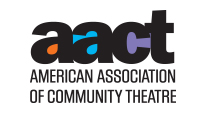Diversity & Inclusion
What is Diversity in simple words?
Diversity is about a rich mix of differences. It encompasses all the dimensions that make each person one of a kind, including ethnicity, race, age, style, gender, personality, beliefs, experiences, sexual orientation and more. Psychological, physical, and social differences that occur among all individuals. A diverse group, community, or organization is one in which a variety of social and cultural characteristics exist
What is Equity in simple words?
Equity levels the playing field. The guarantee of fair treatment, access, opportunity, and advancement for all, while striving to identify and eliminate barriers that have prevented full participation of some groups. Tackling equity issues requires an understanding of the root causes of outcome disparities within our society. Equity is the process of ensuring that processes and programs are impartial, fair and provide equal possible outcomes for every individual. Equity is promoting justice, impartiality and fairness within the procedures, processes, and distribution of resources by institutions or systems. Promoting equality should remove discrimination in all of the aforementioned areas. Bullying, harassment or victimization are also considered as equality and diversity issues.
Diversity vs Inclusion
Diversity doesn’t contradict Inclusion. The extraordinary happens at the intersection of inclusion and diversity. When we come together, the power of each one of us is magnified. By including and appreciating diverse perspectives and backgrounds, we create a stronger commitment, more innovative solutions and better results.
"What is DEI & EDI? – The Complete Guide" on Diversity for Social Impact website
Directing
Diversity & Inclusion
Management
Playwriting




